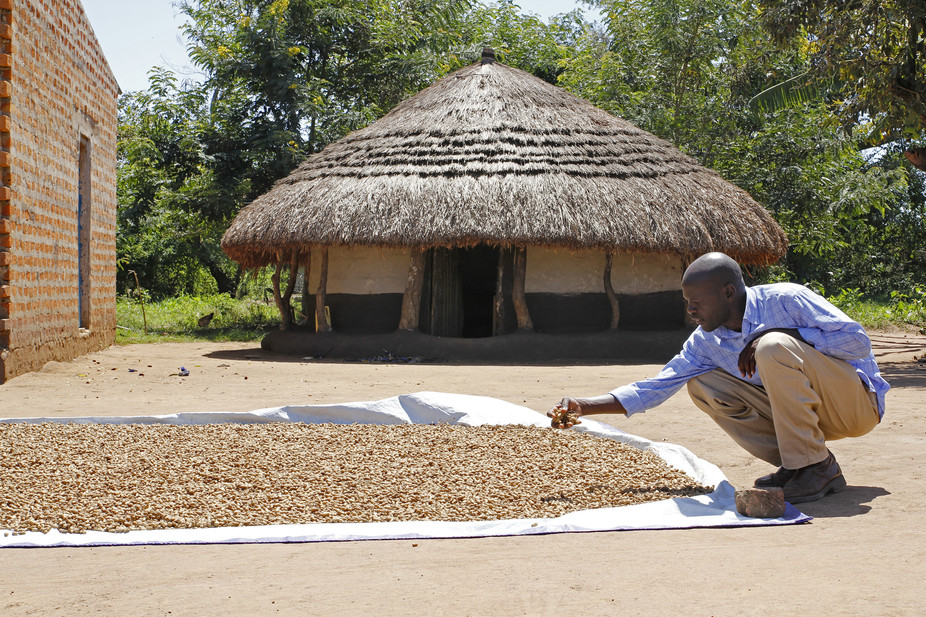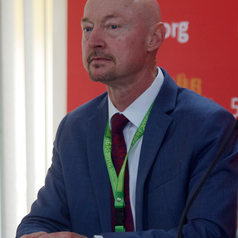The US’s incoming administration has an historic opportunity to extend America’s global leadership by promoting the economic transformations underway in Africa. An effective US strategy would be based on the fact that Africa’s development still greatly depends on the performance of its agri-food systems.
Farming remains the primary source of employment for 65% of Africa’s population. Poverty rates are in decline. But they remain unacceptably high. Putting more money in the hands of 500 million Africans who rely on farming for their livelihoods will have a decisive influence on the pace of economic growth.
Virtually no country in the world has transformed its economy from an agrarian economy to a modern one without sustained agricultural productivity growth.
Why should US citizens care? Quite simply, because investing in Africa’s economic growth is in America’s national interest.
US exports of agricultural products to sub-Saharan Africa totalled $2.6 billion in 2013. This will grow rapidly if Africa continues to develop. By 2050, sub-Saharan Africa will have 2.1 billion people – 22% of the world’s population compared to 12% today. Rapidly rising populations and incomes will increase the demand for a safe, affordable and sustainable global food supply.
US farmers and agribusiness can help themselves by helping Africa meet its rapidly growing food needs. This can be done through investments in agri-food systems as well as supporting a sustainable, efficient global food system.
It is increasingly recognised that most African agricultural exports do not compete with US farm and agribusiness interests. In most instances they are highly complementary.
Rising farm incomes in Africa promote growth multipliers. These expand private investment and employment opportunities in African agri-food systems and in the rest of the economy. Rising incomes in Africa also promote US export interests. A vibrant agricultural sector will hasten Africa’s transition to a more prosperous, diversified and stable region.
These are the benefits that would emerge from strong partnerships between African governments, the private sector and millions of African farmers and entrepreneurs. Enlightened US development assistance programmes are required.
A changing landscape
An effective US government approach will need to recognise the dramatic changes in the African landscape over the past few decades with respect to partnerships. Development models premised on 1980s conditions no longer fit 2017 realities. US development organisations can be especially effective if they understand that today there is much greater local expertise and awareness.
Many more Africans have professional job expertise related to agri-food systems than they did 25 years ago. This is true in both the public and private sectors. Many are educated internationally and possess valuable technical skills. They can operate effectively given superior knowledge of local culture and connections with centres of local power. That means they’re capable of influencing government investments.
An effective US strategy toward African agricultural development will engage more African professionals than in the past.
But conditions have not changed much in at least one important respect. Public agricultural institutions, such as R&D and extension services, play a crucial role in supporting farm productivity growth. But many in Africa can’t fulfil their mandates. Most African agricultural research systems are woefully underfunded. Asian farmers benefit from the fact that their governments annually spend over eight times more on agriculture on average than African governments. Not surprisingly, the pace of productivity growth in Asia has eclipsed Africa’s.
A new model for development assistance
US and African governments share core interests in promoting private investment in African food systems. This would be done in partnership with local firms. It would support fair agricultural trade and a sustainable global food system.
Achieving mutual US-Africa interests for economic transformation in Africa will require greater support for African institutions that support the development of agri-food systems. This means supporting institutions that create the next generation of African educators, farm extension workers, research scientists, entrepreneurs and policy makers. These people will define the pace of private investment and agricultural transformation in African countries.
The US has one of the world’s most dynamic and productive agricultural systems. This is greatly indebted to the US land-grant university system, the US Cooperative Extension Service, and a host of other public institutions. These bring vital practical information to agricultural producers, small business owners, consumers, families and young people. This rich history and know-how means the US can provide much needed leadership and expertise to support institutional capacity building in Africa.
My colleagues and I propose that the main thrust of a new approach to development assistance in Africa should be to shift the role of US organisations. Instead of providing the technologies, services and answers themselves they should help African organisations to do so.
The time has arrived for the US to find effective ways to support capacity building. This should include African universities, agricultural training colleges, vocational schools, crop research organisations, extension systems and policy analysis institutes. International private companies, universities and NGOs have important but increasingly redefined roles that put African institutions in the lead.
Once enacted, the proposals made here will take time to generate their full impact. This is why there is no time to waste in getting started.
You can find Thomas Jayne’s full policy paper on “Human and Institutional Capacity building” here.
 Thomas Jayne does not work for, consult, own shares in or receive funding from any company or organisation that would benefit from this article, and has disclosed no relevant affiliations beyond the academic appointment above.
Thomas Jayne does not work for, consult, own shares in or receive funding from any company or organisation that would benefit from this article, and has disclosed no relevant affiliations beyond the academic appointment above.



 PBOC Scraps FX Risk Reserves to Curb Rapid Yuan Appreciation
PBOC Scraps FX Risk Reserves to Curb Rapid Yuan Appreciation  UBS Boosts Chinese Tech and AI Stocks for 2026 as Sector Eyes Strong Growth
UBS Boosts Chinese Tech and AI Stocks for 2026 as Sector Eyes Strong Growth  Yen Near Two-Week Low as Policy Concerns Weigh; Yuan Strength Pressures U.S. Dollar
Yen Near Two-Week Low as Policy Concerns Weigh; Yuan Strength Pressures U.S. Dollar  Stock Market Movers: Dell, Block, Duolingo, Zscaler, CoreWeave, Autodesk, Rocket, MARA
Stock Market Movers: Dell, Block, Duolingo, Zscaler, CoreWeave, Autodesk, Rocket, MARA  Asian Markets Slide as Nvidia Earnings, U.S.-Iran Tensions and AI Valuations Weigh on Investor Sentiment
Asian Markets Slide as Nvidia Earnings, U.S.-Iran Tensions and AI Valuations Weigh on Investor Sentiment  Gold Prices Steady in Asia, Set for Strong February Gains on Safe-Haven Demand
Gold Prices Steady in Asia, Set for Strong February Gains on Safe-Haven Demand  Trump Touts Stock Market Gains and 401(k) Boost Amid Tariff Uncertainty
Trump Touts Stock Market Gains and 401(k) Boost Amid Tariff Uncertainty  U.S. Stock Futures Hold Steady Ahead of Nvidia Earnings and Trump’s State of the Union
U.S. Stock Futures Hold Steady Ahead of Nvidia Earnings and Trump’s State of the Union  USITC to Review Impact of Revoking China’s PNTR Status, Potentially Raising Tariffs on Chinese Imports
USITC to Review Impact of Revoking China’s PNTR Status, Potentially Raising Tariffs on Chinese Imports  BOJ Signals Possible April Rate Hike as Ueda Eyes Inflation and Wage Growth Data
BOJ Signals Possible April Rate Hike as Ueda Eyes Inflation and Wage Growth Data  Australian Dollar Rallies on Hawkish RBA Outlook; Yen Slips as BOJ Faces Political Pressure
Australian Dollar Rallies on Hawkish RBA Outlook; Yen Slips as BOJ Faces Political Pressure  U.S. Imposes Steep Countervailing Duties on Solar Imports from India, Indonesia and Laos
U.S. Imposes Steep Countervailing Duties on Solar Imports from India, Indonesia and Laos 
































